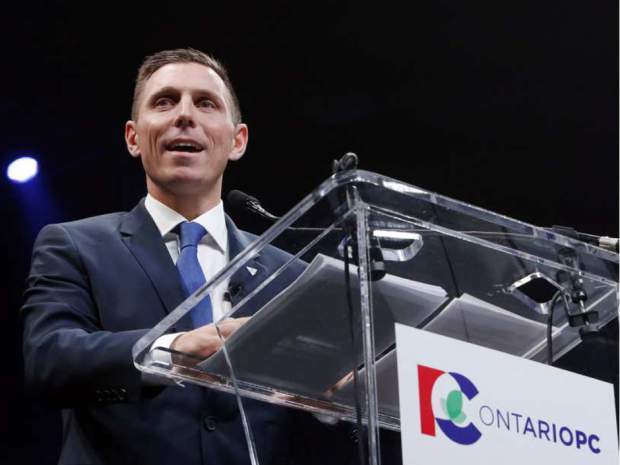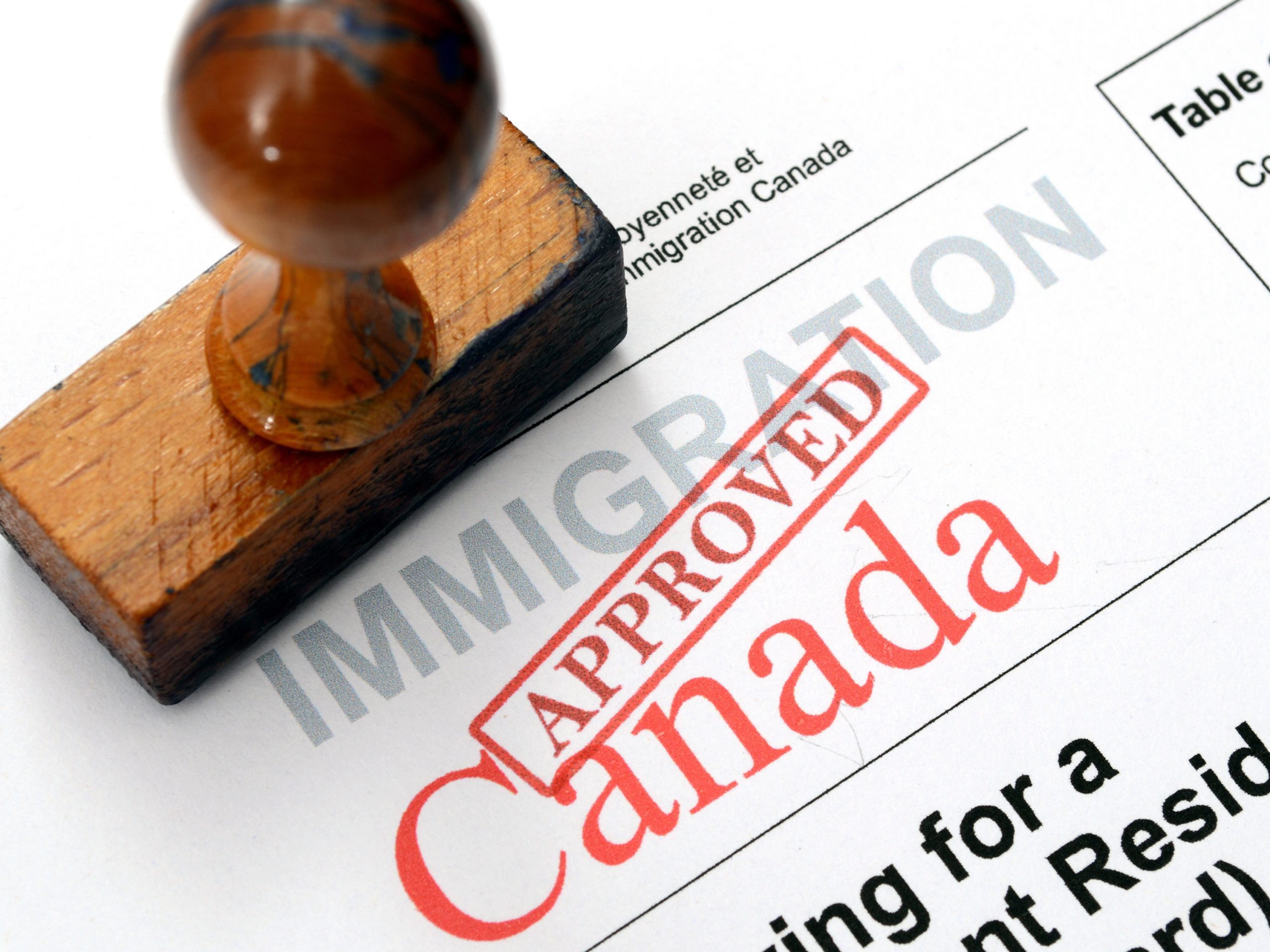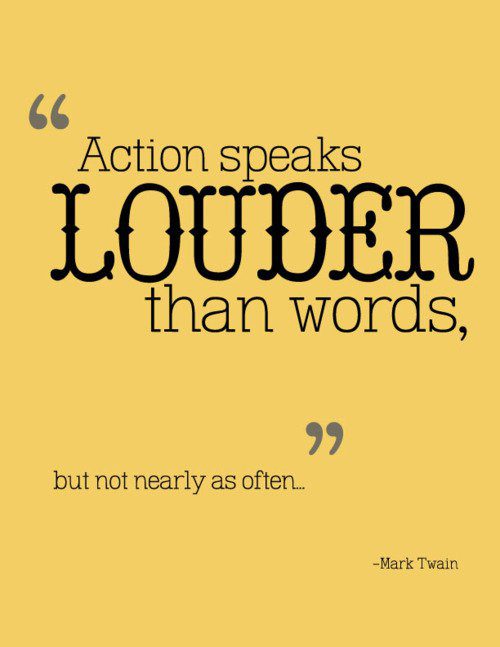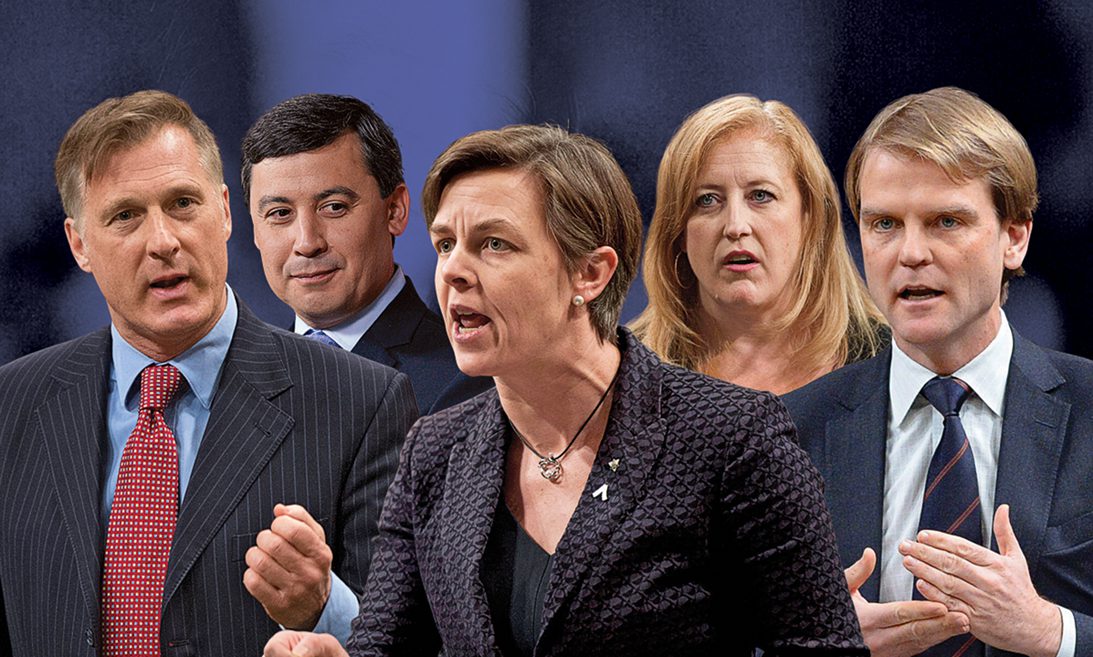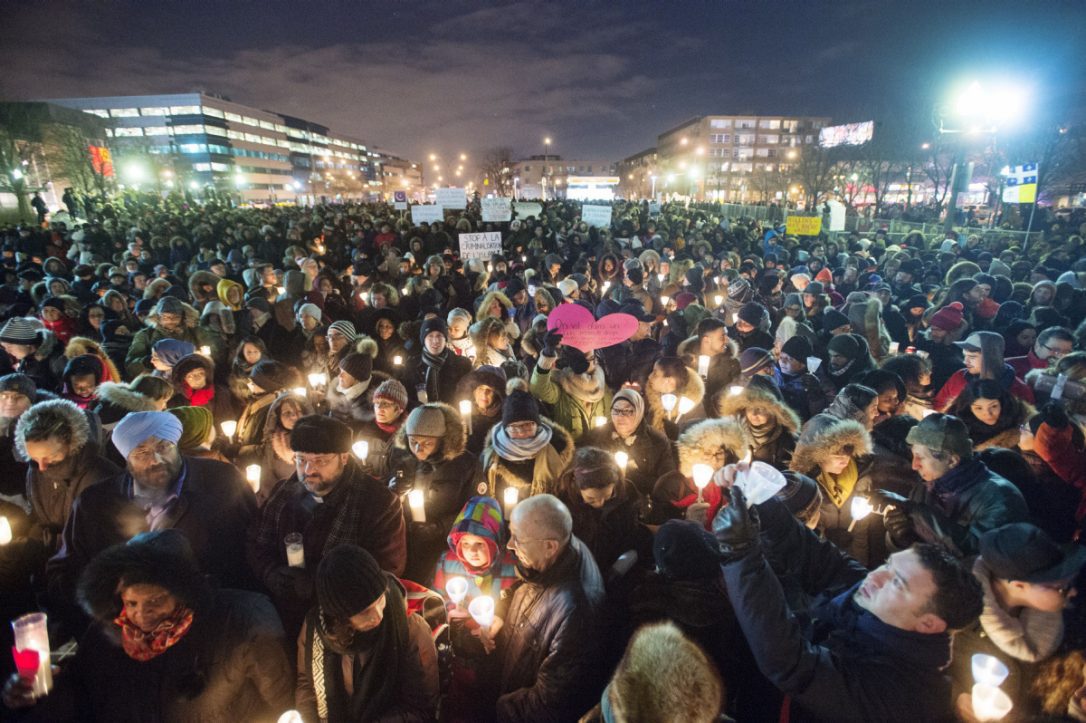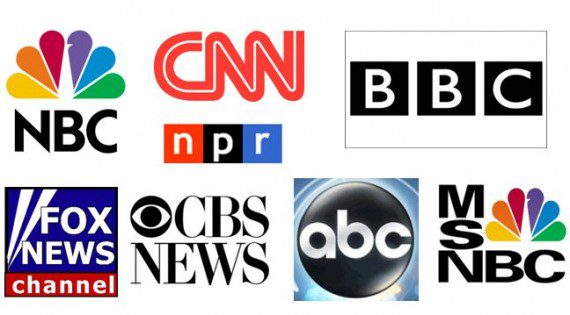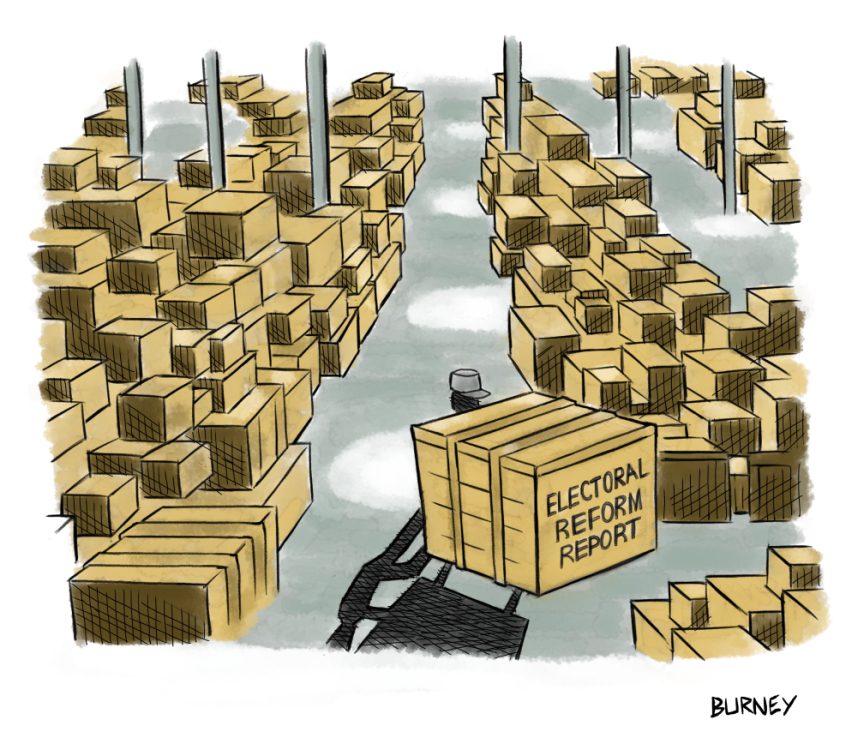Normally, when a leader of the Opposition's chief of staff resigns, there's plenty of speculation. Did he quit? Was he fired? Why do politicians and staffers keep using that "to spend time with his family" excuse?
None of these questions was asked when Patrick Brown's chief of staff hit the bricks recently. You would have to be an extremely dedicated follower of Ontario provincial politics, and PC Party of Ontario screw-ups specifically, to have even noticed.
That's because Ontarians have become so used to the PC Party dropping that ball that it barely even registers. This is in the same province where the Maple Leafs lose habitually, and they still draw more attention than the Ontario PC's. And those two organizations have even been run by some of the same people!
How did the Ontario PC's become so incredibly boring and bad at what they do, especially since the Liberals are almost, but not quite as terrible?
Laziness
Pretty much everyone agrees that the Ontario Liberals are at death's door, even many Ontario Liberals themselves. What the PCPO does with this fact, however, is assume power is just going to fall into their laps.
If I had to come up with one image to describe the PCPO approach to winning government, I would ask you to think about that guy you know who spends all his time chasing after women and thinks it's their problem when they notice his considerable flaws and reject him. The PCPO is That Guy.
Here's the problem: That Guy gets lucky every so often, so he's going to keep on doing what he's doing without improving. The PCPO only has to get lucky ONCE and they will be back in power- and what's worse, they think they will be there forever, because in their minds, they were never supposed to LOSE government back in 2003.
The PCPO doesn't need to win to make money
You know how I said the PCPO has been managed by the same people who run the Toronto Maple Leafs? And you also know how the Leafs make tons of money every year without winning the Stanley Cup or, mostly, making it to the playoffs?
Now, I don't want to imply that the PCPO is….gasp…more interested in making money off gullible, naive, and overly trusting Ontarians than they are in winning government. I'm just saying that if you were pulling down as much money as the PCPO was, maybe you wouldn't be as hungry or desperate to win as you need to be.
The message is EVERYTHING
Every so often you will read some whiny editorial in the Toronto Sun or some other sympathetic news outlet about how if only the PCPO would stick to the message of 'it's the economy stupid' they would be able to stroll lazily back into government but wouldn't you know it? Some idiot keeps mucking everything up by getting distracted by some social issue. Arrrrrgh.
So this is why you get a leader like Patrick Brown. What the PCPO powerbrokers have wanted for years is someone who will do exactly what they're told without needing to be coached.
Here's the problem with that: The powerbrokers themselves are the ones that get distracted because a) hate for the Liberals keeps them alive and they want a chance to embarrass them for a change, and b) sticking to message is boring. And this is why we get faith based schools, 10,000 public sector jobs, sex-ed flipflops, etc….but when that happens, you can always blame the membership and say "they wanted this policy!"
Provincial parties are franchises
Hey you know who you didn't hear much from during Kevin O'Leary's recent highly publicized spitting match with Kathleen Wynne? Patrick Brown, that's who. Not just because of the usual media blockade, but because it creates unpleasant message confusion if a frontrunner for the federal leadership and a provincial leader are commenting on the same issue.
Yes, if you haven't noticed, the federal party looooves to meddle in the affairs of the provincial parties, right down to the fact that former MP's well versed in the CPC's message control get tapped to lead. First with Jim Prentice and now Jason Kenney in Alberta, Brian Pallister (more successfully) in Manitoba, and of course Brown himself.
Want more examples? Just try having your provincial party convention during a federal election. Or, if you want to run for a nomination, the best thing you could do is have a spouse who works for the federal party already.
There are limits, however. Just because you were a federal member of Parliament or a cabinet minister doesn't mean that you can run for a nomination in a riding that you've never represented and win. For now.
Finally- the PCPO can't think of a single original solution to a problem
Among the dreariest experiences I've had in my life is attempting to design policy for the PCPO.
Not only did none of it ever make it into the platform (which is written by staffers and powerbrokers, but that's another story), but the entire process tended to be driven by the question of how can the party do what the Liberals are doing, but better?
If you take this task on, chances are you'll be looking at the "mandate letters" written by the Premier to her Ministers and trying to design solutions to those very same problems that will appeal to various segments of the base- Red Tories, so-cons, libertarians, and so on. All (in many cases) without speaking to a single person from one of those groups. Or, you'll be asked to look at what other jurisdictions- jurisdictions other than Ontario- are trying, and plagiarize it holus bolus.
As safe as this is, it means that everything the PCPO comes up with is either copying the Liberals, reacting to the Liberals, or trying something that has no business being tried in Canada. Then, when the election comes around and voters start telling candidates that "all the parties are the same!", the campaign managers can't figure out why…..
So as you can see, the PCPO has a lot of bad habits. But, even though I complain about them a lot, it isn't actually hard to fix what's wrong with the party. Unfortunately, the worst thing you can do when you're not a PCPO powerbroker is give advice, but tune in next time when I do it anyway!
Written by Josh Lieblein



